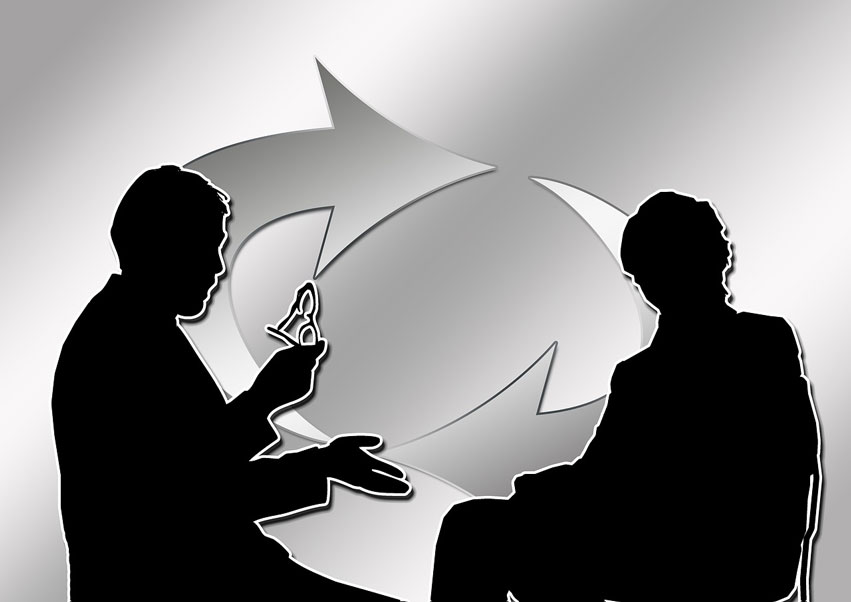Jonah Berger, Professor of Marketing at the Wharton School in Pennsylvania, has some new and deep insights into how we are influenced at the subconscious level.
On a recent PBS radio interview, I heard Jonah’s interesting take on influence. Here are a few of the lessons gleaned.
1. As Americans, we tend to think of influence as a bad thing.
We like to think of ourselves as lone mavericks, controlling our own destinies unencumbered by outside influences. Yet without influence, life would be more difficult, a series of raw uninfluenced decisions. Contrast America to Japan, where “team” thinking is much more prevalent. There the symbiosis of how one fits into the team, culture and society is given much more weight. Yet, we as the American individualists aren’t nearly as individual as we’d like to think.
2. Even when the right answer is clear, we tend to follow others.
We don’t exist in logic bubbles. Social influence plays a larger role in our lives than we’d like to admit. A famous scientific experiment featured subjects and subject-actors. Subjects were shown several length lines and told to pick the two that matched in length. When the subjects went first, the task was simple, and they picked the correct line a vast majority of the time. But when the subject-actors went before them, and several in a row picked the wrong length line (as they were coached to do before the experiment started), the real subjects then waivered heavily in their decision. What happened? Social influence.
Even when the right answer is clear, we tend to follow others.
This is true even in mere preferential selections.
Berger points to a familiar life experience. You go to a restaurant with a group and upon looking at the menu, decide there is definitely a dessert you’d like to try after the main course. But when the waiter approaches, all your peers decline dessert. Do you go solo and say, “I’d like a dessert.” As the research suggests, probably not.
3. Having a competitor slightly ahead of you is a huge influencer.
Berger points out that having a competitor who is slightly ahead of you is one of the greatest motivators and influencers.
He points to a study that shows that basketball teams who trail badly at halftime most often lose, but teams that are down by only one point at halftime tend to comeback and win.
My take? Place yourself in competitive environments where there are co-workers or outside brands slightly ahead of you. Seek to overtake them.
4. Be different, but not too different.
Berger’s research has shown that we actually prefer the optimized familiar rather than the radically different. If things are too different, they might be scary to us, or we might have a hard time seeing how the different fits into our daily lives.
Two recent products reinforce this. The iPod optimized the old Sony Walkman and other tape or CD personal players. The iPod made the music experience simpler and more convenient. There was no need to carry around a case of CDs. The iPod is the optimized familiar.
Contrast this to Google Glasses, where a user had a radically different experience of being connected to the internet in real time, seeing both the real world and virtual world simultaneously. The experience was so different that Google Glasses adoption was very slow. In fact, many call the Google Glasses experiment a failure.
When the automobile was invented, designers even put fake horse heads on the cars to make them seem more familiar. Google’s driverless car will be interesting to watch. Will it be cloaked with a steering wheel and similar shape to help people feel more comfortable even though these items are not needed?
5. Sometimes we want to be different and therefore act merely to be different.
Berger points to a study that shows siblings are often as different as two random people, despite genetic similarities. Why? There was a conscious choice by younger siblings to differentiate from older siblings. This is especially true where it would be difficult to supplant their sibling in that area of success. If the older brother or sister is a great tennis player, the younger sibling would chose a different sport or even try to succeed at debate, drama or music.
People who see themselves as musical influencers will like a band until they become mainstream, and then stop liking that band merely because others start to like them. This change of preference is not because the band changed their sound, but because they became popular. Continuing to like the band would, in their own mind, denigrate their position as a thought leader in the musical realm.
6. But, in contrast to #5, we really tend to not want to be seen as too different.
We desire to be bonded to others. This is often done through mimicry. We subconsciously mimic body language, pace of talking and other mirroring that we observe in others. Research shows strong influencers even shift to subtle, conscious mimicry to endear themselves to those they seek to influence.
7. Be careful with whom you allow to be your friend and peers.
The longer amount of time you spend with someone, the more you will inevitably adopt his or her viewpoints. While it is healthy to hear divergent ideas and positions, Berger finds you will become like those with whom you associate.
Closing Thoughts
The public radio interview was definitely a fascinating interview. Berger has a new book, Invisible Influence: The Hidden Forces that Shape Behavior, which I can’t wait to get my hands on after hearing this interview. As a lifelong student of influence, his work provides additional research and anecdotes to help us grow as influencers.





